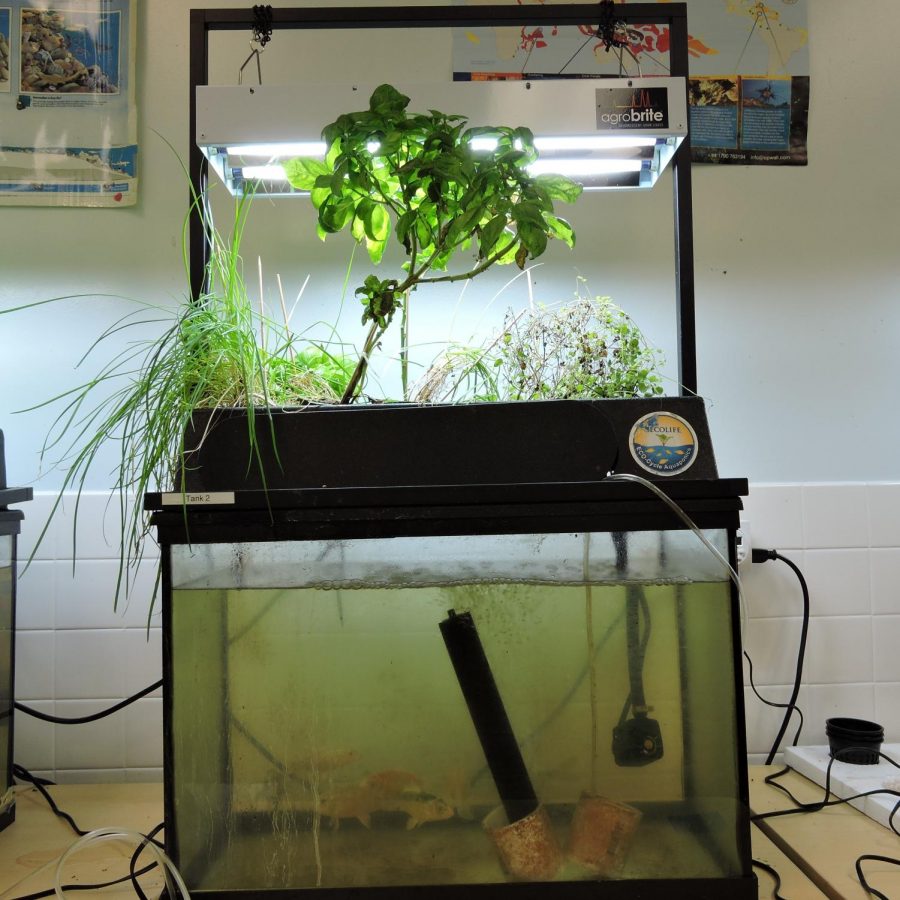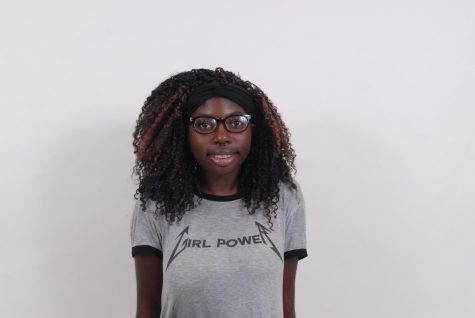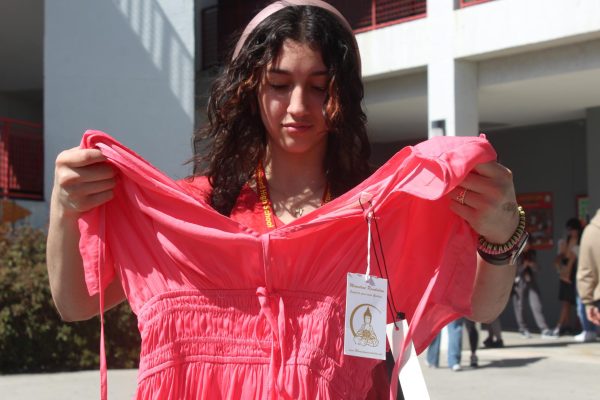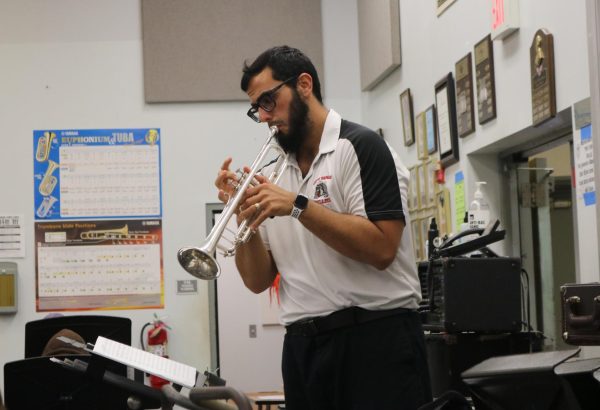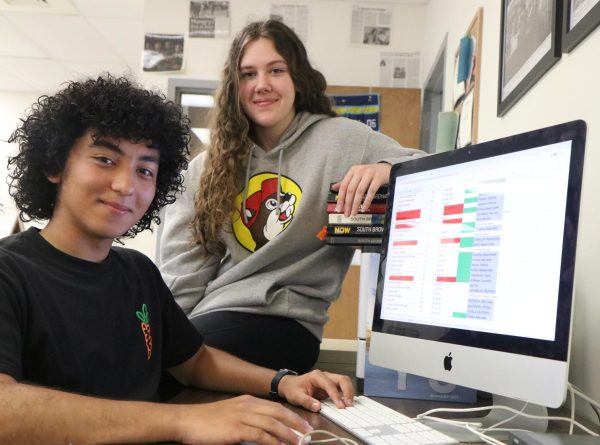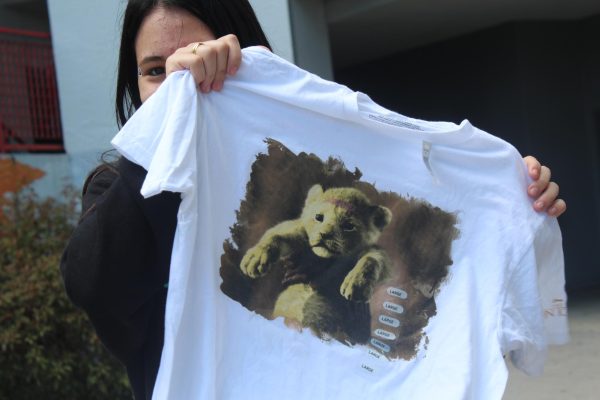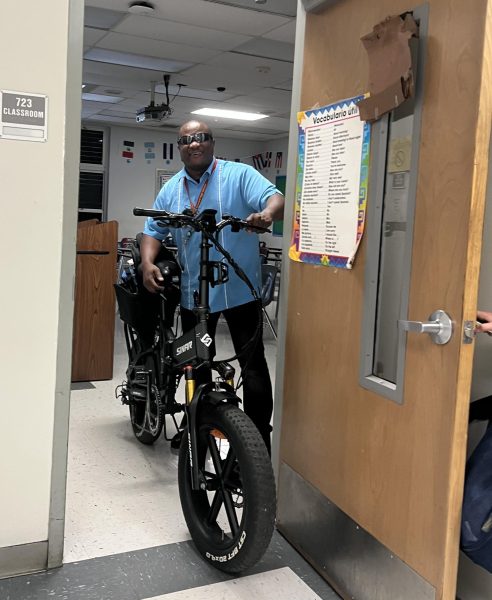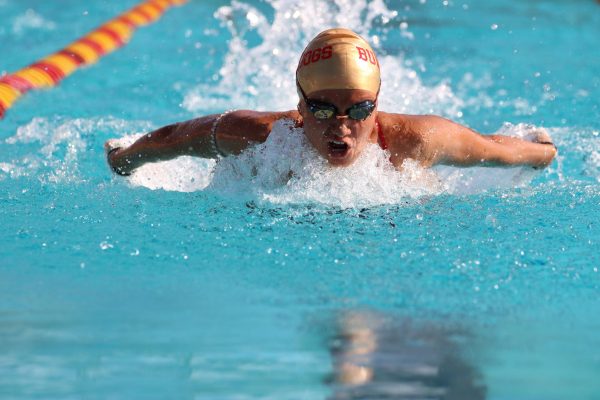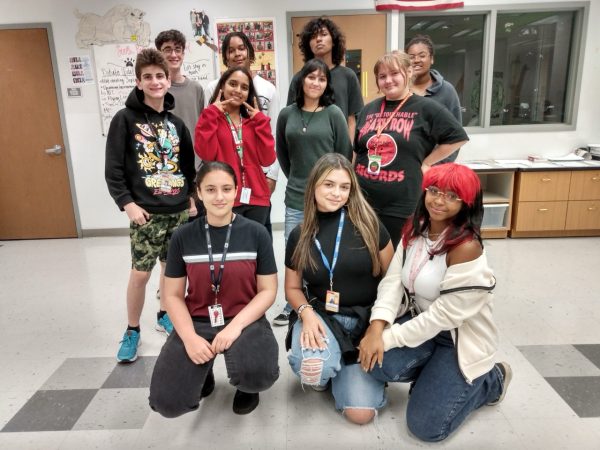Aquaponics Club: An Underwater Garden
A miniature aquaponics system in Mr. Hagerty’s room.
March 15, 2019
Water levels are rising, the land is shrinking and farming will be harder in the future, but a group of SBHS students are planning a way to survive this potential tragedy of global warming. Aquaponics is the process of growing food more efficiently, without soil, and that’s exactly what they are doing. The club was founded by Erica Luzon, a senior, as well as Maritime and Critical-Thinking teacher Mr. Hagerty.
Aquaponics is a system that combines the concept of fish farming and growing plants. In the back of the school, behind the pool and near the racquetball courts, students at South Broward have created their own unique system. This system combines conventional aquaculture with hydroponics, raising aquatic animals in tanks and cultivating plants in water in a symbiotic environment.
This system grows edible plants such as basil, jalapeños, and banana peppers without soil and using 20 times less water than traditional gardening.
“When you use normal soil, the plant takes some of that soil into its taste. So peppers tend to taste hotter when you use an aquaponic system,” said Mr. Hagerty. “Even peppers that aren’t normally spicy have an increased taste.” This goes for almost all plants that are grown in an aquaponics system.
The system works by taking fish, especially Tilapia and Koi, and using them to create a small ecosystem with edible plants such as sweet basil, Russian basil, jalapeños, banana peppers, and cilantro. The nitrates from the fish waste fertilize the plants. Water from the tank gets pumped up to the plants which filter the water, allowing the fish to live in a more natural, less polluted, environment.
“I wanted to start this club to raise awareness about aquaponics, and our main goal here is to show students a way to raise fish in a closed environment and let them get hands-on experience,” said Luzon.
The members of the Aquaponics Club are tasked with the care of the fish as well as trimming the basil with a little supervision from Mr. Hagerty and Vice President Jordan Joseph-Ayers. Members were allowed to trim the plants above the small aquaponic system so they didn’t get burned by the lamp and do a 50% exchange of the water in the tanks.
“I love working with these fish. Even if it’s kinda gross to be cleaning out fish poop it’s actually really fun!” said new club member Jordyn Chazulle, a sophomore.
Though Mr. Hagerty has had some mishaps with the fish and plants, in the aquaponics garden, the fish are thriving. Hagerty is very passionate about marine life, aquaponics also tries to grow coral to help populations that are dying in the Great Barrier Reef. A small tank in the back of Mr. Hagerty’s room with a thriving saltwater population of fish and coral proves that the club is slowly reaching this goal.
“We really want to raise awareness about the system,” says Luzon, ”It saves money and space and the way we grow our plants is healthy.” In an attempt to grow healthy food, the club doesn’t use any pesticides. Club members take this philosophy to heart.
“I’ve used pieces of basil and banana peppers in dishes I’ve cooked at home and they’ve come out really well!” says Miriam Schonwetter, the treasurer of the club.
As for big plans for the future, Luzon says “Maybe at the farmers market one day as a club field trip but that is pretty far off in the future.” Currently, the club is fundraising and participating in the homecoming door decorating competition. “We want to eventually get to the point of being able to sell some fish and plants for food,” says the founder.
To sell the fish and veggies they grow, the club’s aquaponics system has to reach a point where they have enough plants and animals to sustain a shop which, though far in the future, is not impossible by any stretch of the imagination.
“Food production shouldn’t be destroying the planet when we have a more environmental alternative and we want this to be a global phenomenon! We strive to grow plants that are healthy, don’t harm the environment, and taste good.”

